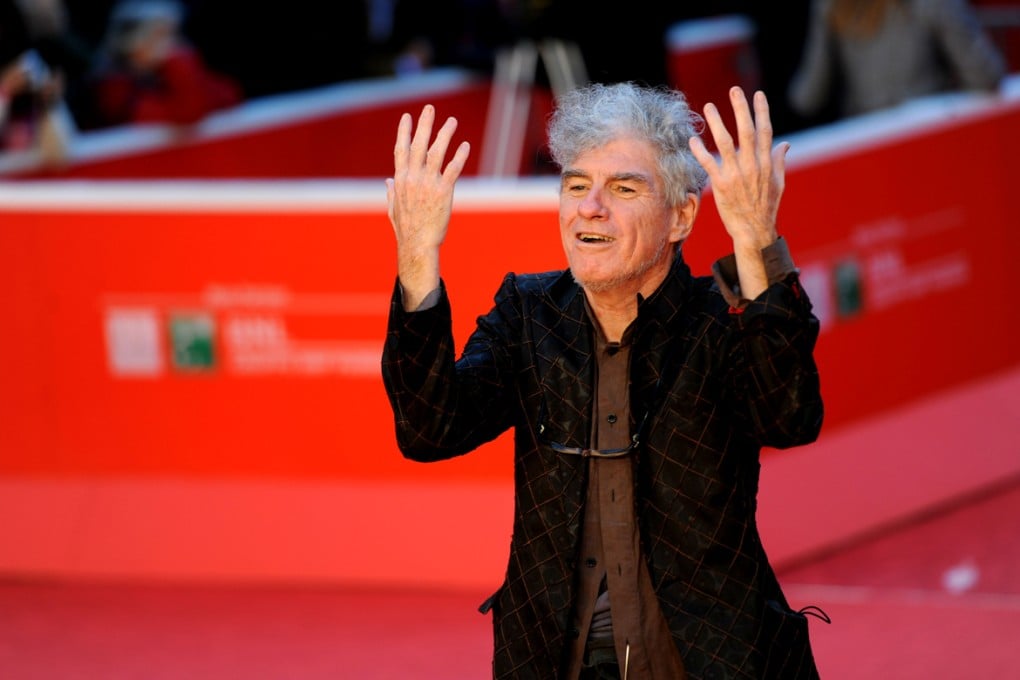
Christopher Doyle, the award-winning Australian cinematographer, is flaunting his creative prowess in an exhibition of his artwork in Central’s agnès b Librairie Galerie, which runs until January 3. Doyle, or Du Ke Feng, as he is often referred to on these shores, has never been one to mince his words and earlier this year he spilt a little of his vitriol on the Oscar contenders, calling the beginning of Steven Spielberg’s Lincoln “the most disgusting first three minutes of a film I’ve ever seen”. Doyle was the cinematographer on the 1983 movie That Day, on the Beach, the feature debut of director Edward Yang …
Regarded as one of the leading filmmakers of the Taiwanese New Wave, Yang was a toddler when his family fled the mainland during the Chinese civil war. Raised in Taipei, he fell in love with European movies. “I would tell my school friends what I had seen and then I started to draw the films so that more people could see them. After that, I started to make up sequels and my own stories.” Yang’s somewhat autobiographical tale A Brighter Summer Day, which is often likened to West Side Story, takes its name from a lyric in Are You Lonesome Tonight, a ballad sung by Elvis Presley …
Practically inventing rock ‘n’ roll and singlehandedly changing the course of music and culture in the mid-1950s, Presley was considered a threat to the moral well-being of young women because he represented sexual liberation and was the first symbol of teenage rebellion. Presley’s own mother stated that “he arouses things in [teenage girls] that shouldn’t be aroused”. In Las Vegas, in 1973, “The King” presented a specially made robe emblazoned with the title “People’s Choice” in rhinestones and jewels to “The Greatest”, legendary boxing champion Muhammad Ali …
As a conscientious objector, Ali declined to serve in the United States armed forces in 1967 and, after famously declaring “I ain’t got no quarrel with them Vietcong,” he refused to be drafted at his military induction. Ali was subsequently arrested and stripped of his boxing title but his resolute anti-war stance inspired Martin Luther King to begin voicing his own opposition to the Vietnam war. At the end of 1990, prior to the beginning of the Gulf war, Ali secured the release of 15 American hostages after flying to the Iraqi capital, Baghdad, and talking with Saddam Hussein …
In 1997, on his 60th birthday, the Iraqi dictator commissioned a copy of the Koran to be etched with his own blood, a forbidden act under Islamic law, in gratitude to God for helping him through a life full of dangers. Over the course of two years, Hussein donated nearly 27 litres of blood for a calligrapher to work with. In 2003, the “Blood Koran” was put into storage after Hussein was deposed in the USled invasion, a war publicly condemned in the Christmas protest song Whatever Happened to Peace on Earth, by country music icon and notorious stoner Willie Nelson …
The octogenarian crooner recently pulled the plug on a concert scheduled to take place at SeaWorld due to “the unfair treatment of animals” at the Florida theme park. Nelson, a long-time animal-rights activist, announced the cancellation after SeaWorld’s practice of keeping orca whales in captivity was brought to light in the documentary Blackfish. Nelson’s 2004 album It Always Will Be featured the track I Didn’t Come Here (And I Ain’t Leavin’), a song about hard drinking that lends its title to the ongoing art exhibition of Hong Kong resident – and a man partial to the odd drink – Christopher Doyle.